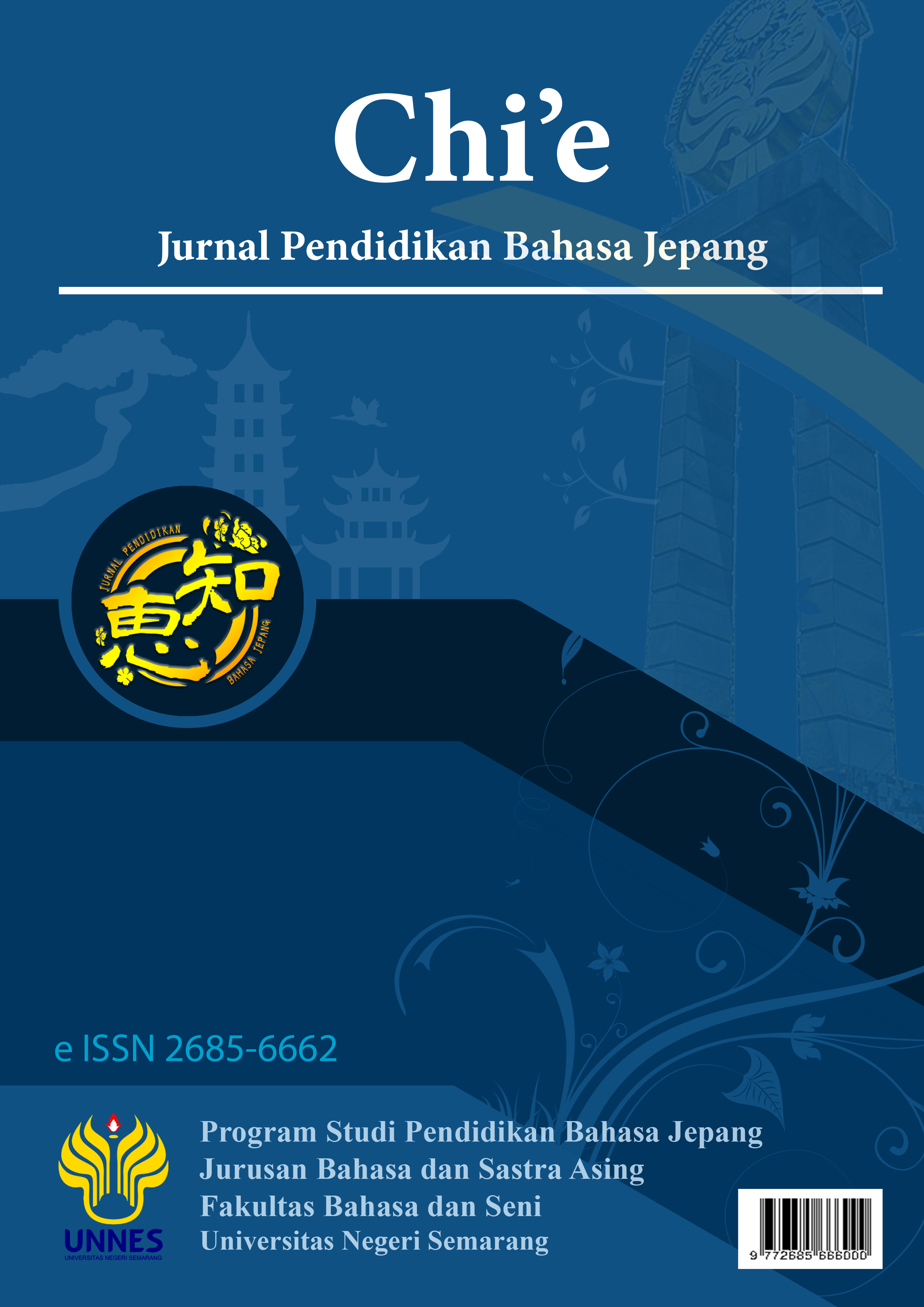Ideational, Interpersonal, and Textual Meanings in a Japanese Storybook, “Kibou no Bokujou”
Abstract
This research examines ideational, interpersonal, and textual meanings by applying the theory of Systemic Functional Linguistics by Halliday & Matthiessen (2014). The qualitative methodology was used to comprehensively explain the meaning in a Japanese storybook entitled Kibou no Bokujou ‘A Livestock of Hope’ by Mori & Yoshida (2015). Based on the analysis of the lexico-grammatical aspect used in the text, it can be concluded that these three meanings simultaneously relate. Ideational meaning shows the domination of material processes generally found in children's narratives. Interpersonal meanings show a tendency of IndicativeDeclarative MOOD, which can be interpreted as the author of the storybook being positioned as the information provider to the readers. Textual meaning shows that the information distribution is frequently realized with the unmarked topical theme, which can be interpreted as most of the texts' subjects are farm owners and their cows. Meanwhile, the thematic progression is dominated by a reiteration pattern (constant theme). It can be interpreted that the same theme repeatedly and sequentially appears to help the readers understand the text. A storybook entitled Kibou no Bokujou has successfully provided information about the struggle of a farm owner who chose to stay on his farm after the earthquake and tsunami. The information is delivered in a narrative that can be easily understood without putting aside the entertainment aspect of a storybook.















